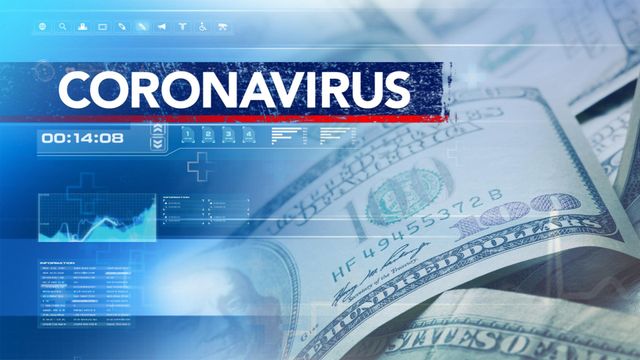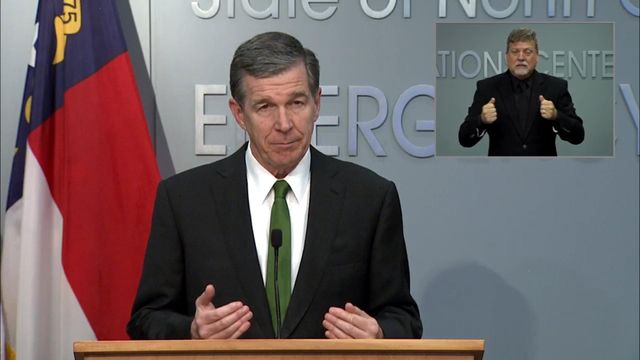Money for families, internet expansion, hard-hit businesses part of Cooper's plans for $5.7B in federal pandemic aid
Gov. Roy Cooper laid out his ideas Wednesday for how North Carolina could best benefit from $5.7 billion in federal pandemic relief aid, including a major expansion of internet service across the state, checks for families with school-age children, needed infrastructure upgrades and aid to struggling restaurants, bars and hotels.
Posted — Updated"It's time to seize this opportunity as we emerge from this crisis and build back stronger," Cooper said during a news conference. "An unprecedented pandemic requires unprecedented investment."
County and municipal governments will get their own pot of $3.2 billion to spend in the coming years, Perusse said.
Under Cooper's proposal, the largest chunk of the funds, $1.2 billion, would go to expanding internet access in North Carolina. Nearly three-fifths of the state's population can't get reliable, affordable internet service, Perusse said, and the money would help push that rate above 80 percent – and near 100 percent for families with children – by 2025.
An estimated 660,000 families with school-age children would qualify for grants of up to $500. Families with annual incomes up to $30,000 would get $500 grants, while those with incomes between $30,000 and $60,000 would get $250 each.
Another $800 million would go to improving aging water and sewer systems statewide under the governor's plan, as well as $500 million to build and renovate thousands of affordable housing units.
The state's hospitality industry, which includes some of the businesses hit hardest by pandemic-related closures and operating restrictions, would be in line for $350 million in assistance, which Perusse said is more than 10 percent of the revenue the sector lost.
Other spending priorities in the plan include the following:
- $520 million in two programs to provide scholarships to students at University of North Carolina campuses, community colleges and independent colleges. They would be targeted at lower-income families.
- $175 million to revitalize downtown areas in rural communities
- $160 million to test for and remove lead and asbestos in schools and child care centers
- $150 million to purchase equipment for science and technology courses at UNC campuses, community colleges and independent colleges
- $102 million to expand the state's pre-kindergarten program
- $100 million to help the State Health Plan offset its pandemic-related costs
- $75 million to boost research done by UNC schools into coronavirus and other pathogens that could cause future pandemics
- $75M for literacy coaches at low-performing elementary schools
- $16 million for seven Native American tribes the state recognizes but the federal government doesn't
Money also is earmarked to help people with chronic health conditions, homeless individuals, food banks, small farms and museums, libraries and cultural centers.
"A lot of people and businesses need help now, and this proposal provides that. But permanent progress requires transformational change, and this proposal provides that, too," Cooper said.
Some state workers lobbied Wednesday for more money for government employees.
"We deserve to be compensated as far as hazard pay," Sekia Royall said. "They took our hazard pay back in January, saying that the state didn’t have enough money."
Cooper and state lawmakers will negotiate in the coming weeks and months over how to spend the federal aid.
• Credits
Copyright 2024 by Capitol Broadcasting Company. All rights reserved. This material may not be published, broadcast, rewritten or redistributed.






